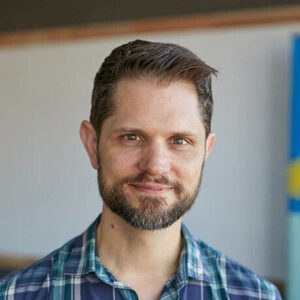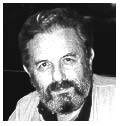Publishing Talks: Interview with Arthur Attwell
February 2, 2021 by David
Filed under Ebooks and Digital Publishing, PublishingTalks, Technology
 Publishing Talks began as a series of conversations with book industry professionals and others involved in media and technology, mostly talking about the future of publishing, books, and culture. I’ve spent time talking with people in the book industry about how publishing is evolving in the context of technology, culture, and economics.
Publishing Talks began as a series of conversations with book industry professionals and others involved in media and technology, mostly talking about the future of publishing, books, and culture. I’ve spent time talking with people in the book industry about how publishing is evolving in the context of technology, culture, and economics.
Some time back, this series broadened to include conversations that go beyond the future of publishing. In an effort to document the literary world, I’ve talked with a variety of editors, publishers and others who have been innovators and leaders in independent publishing in the past and into the present.
These conversations have been inspirational to me on many levels. I have gotten to speak with visionaries and entrepreneurs, as well as editors and publishers who have influenced and changed contemporary literature and culture.
Today’s guest is another such special individual. Arthur Attwell, who lives in Capetown, South Africa, got his start in publishing working for Oxford University Press as an editor. Impatient with the inefficiencies of publishing, he left to start up his current venture with some collaborators, Electric Book Works, which has been building books since 2006 that are active in multiple formats and versions, from beautifully produced print books to well fashioned ebooks to websites that express the book form in new ways.
In addition to the work he has done with Electric Book Works, this energetic entrepreneur has co-created an impactful health care information project, Bettercare, which has created and distributed healthcare learning materials to thousands of practitioners and consumers all over Africa. Although this project, entirely volunteer run, has had to cut back on its activities because of the pandemic, its impact continues with part timers and reduced capabilities.
Perhaps the most exciting efforts I have learned about recently is yet another Attwell project, Book Dash. Arthur and his partners created (and have since carefully refined) a process that assembles teams of book professionals to create and publish children’s books, and which also the raises money and support needed for the printing and distribution of thousands of books across Africa, with the stated goal that every child should own 100 books by the time they are five years old! The Book Dash process was built as an intensive one day effort, gathering teams in person, but has quickly adapted to a virtual model, enabling contributors to participate from multiple physical locations. They have made some really terrific books using this process and Book Dash has now distributed over one million books to children in Africa.
With the time difference between us, arranging this talk required bit of organizing, but we were able to speak recently by Skype. My original goal was simply to give Arthur an opportunity to talk about Book Dash. But we ended up having a much wider conversation on a range of topics, including distributed print on demand printing, a dream concept we both have explored, and much more. I suspect we will talk further in the necessary follow up conversation I hope to have with him as there are so many exciting ideas to discuss.
For now, I hope you will enjoy listening to Arthur Attwell as much as I did.
Arthur’s “On Transit” Talk
Podcast: Play in new window | Download
Publishing Talks: David Wilk interviews Eugene Schwartz
June 9, 2013 by David
Filed under Ebooks and Digital Publishing, Publishing History, PublishingTalks, Technology, The Future
 In this series of interviews, called Publishing Talks, I have been talking to book industry professionals and other smart people about the future of publishing, books, and culture. This is a period of disruption and change for all media businesses. We must wonder now, how will publishing evolve as our culture is affected by technology, climate change, population density, and the ebb and flow of civilization and economics?
In this series of interviews, called Publishing Talks, I have been talking to book industry professionals and other smart people about the future of publishing, books, and culture. This is a period of disruption and change for all media businesses. We must wonder now, how will publishing evolve as our culture is affected by technology, climate change, population density, and the ebb and flow of civilization and economics?
I hope these Publishing Talks conversations can help us understand the outlines of what is happening in the publishing industry, and how we might ourselves interact with and influence the future of publishing as it unfolds.
These interviews give people in and around the book business a chance to talk openly about ideas and concerns that are often only talked about “around the water cooler,” at industry conventions and events, and in emails between friends and they give people inside and outside the book industry a chance to hear first hand some of the most interesting and challenging thoughts, ideas and concepts being discussed by people in the book business.
Gene Schwartz has been an active participant in the publishing business for many years. I first knew him as the ubiquitous representative of the magazine Foreword, covering every possible book and technology event for the benefit of independent publishers. He still works as editor at large of Foreword Reviews. He is an industry observer, an occasional blogger and columnist for Book Business magazine, a member of its editorial advisory board and its Publishing Business Conference and Expo Advisory Board. He heads his own publishing consultancy, Consortium House, and is currently engaged in new business development projects for Waterside Productions, He is also notably co-founder of Worthy Shorts Inc., an innovative online private press and publication service for professionals , publishers and associations
In an earlier career, he was in the printing business, directed production at Random House and CRM Books/Psychology Today and was director of production and operations for Prentice-Hall/Goodyear. He is a former PMA (IBPA) board member and founder of the San Diego Publishers Group.
Schwartz has a civil engineering degree from CCNY and completed graduate course work in public administration at NYU, so like many of us in the publishing business, he came to this business from a very different background.
I thought it would be valuable to talk to Gene about publishing, past, present, and future, since he has been involved in so many different aspects of the business over such a long period of time. He is consistently perceptive about the way technology and change can be harnessed by publishers and others in the book business, and has a terrifically tuned critical sensibility that he can bring to bear on any subject. We had a great talk and covered a wide range of subjects in this interview.
Podcast: Play in new window | Download
Publishing Talks: David Wilk interviews Jason Epstein
May 10, 2010 by David
Filed under Publishing History, PublishingTalks, Technology, The Future
 In this series of interviews, called Publishing Talks, I have been talking to book industry professionals about the future of publishing, books, and culture. This is a period of disruption and change for all media businesses.
In this series of interviews, called Publishing Talks, I have been talking to book industry professionals about the future of publishing, books, and culture. This is a period of disruption and change for all media businesses.
How will publishing evolve as our culture is affected by technology, climate change, population density, and the ebb and flow of civilization and its economics? Publishing Talks interviews help us understand the outlines of what is happening, and how we might ourselves interact with and influence the future of publishing as it unfolds.
These interviews give people in the book business a chance to talk openly about ideas and concerns that are often only talked about “around the water cooler,” at industry conventions and events, and in emails between friends. I believe these interviews give people inside and outside the book industry a chance to hear first hand some of the most interesting and challenging thoughts, ideas and concepts being discussed within the industry.
Jason Epstein has led one of the most creative careers in book publishing of the past half century. In 1952, while a young editor at Doubleday, he created Anchor Books, which launched the so-called ‘paperback revolution’ and established the trade paperback format. In the following decade he became cofounder of The New York Review of Books. In the 1980s he created the Library of America, the prestigious publisher of American classics, and The Reader’s Catalog, the precursor of online bookselling. For many years, Jason Epstein was editorial director of Random House. He is the recipient of many awards, including the Curtis Benjamin Award of the American Association of Publishers for inventing new kinds of publishing, the Lifetime Achievement Award of the National Book Critics Circle for creative publishing, and the National Book Award for distinguished contribution to American Letters. As an editor, he worked with many well-known novelists, including Norman Mailer, Vladimir Nabokov, E. L. Doctorow, Philip Roth, and Gore Vidal, and important non-fiction writers as well.
Most recently he has spearheaded the creation of the Espresso Book Machine as co-founder of On Demand Books, and is the author of Book Business: Publishing Past, Present, and Future and numerous articles and essays.
For me it was a great honor and pleasure to talk to Mr. Epstein at his kitchen table, first about his incredible career in publishing, then about his current work with on-demand publishing, and of course, his many ideas about the future of books and publishing, all of which deserve the close attention of all of us who are trying to figure out where books, publishing and literary culture is headed. His vision of the evolving future of the nature of publishing and the value of traditional editorial skillsets will be of particular interest to many listeners.
Podcast: Play in new window | Download



